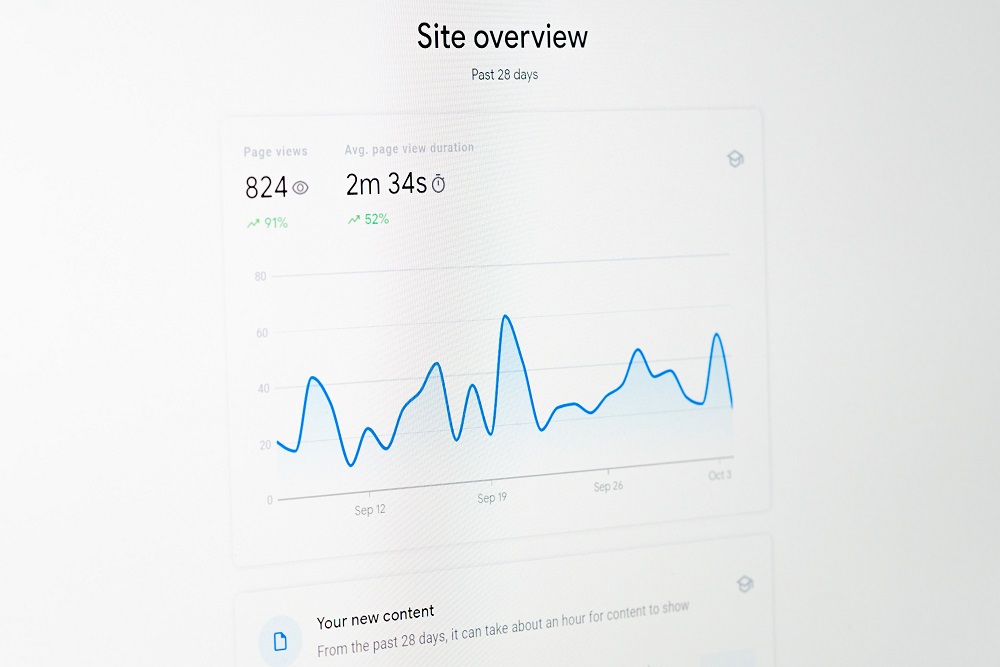The advancements in big data technologies are unlocking a new treasure trove of insights for businesses globally. While earlier business intelligence and analytics applications were limited to structured data in relational databases and data warehouses, today, there is a lot of potentially valuable data that does not fit the relational mold.
Big data today has taken center stage as companies across a huge range of industries are beginning to understand the opportunities it brings along. Yet, there is a lack of understanding of the concept.
Big data is far more than just a buzzword thrown into the conversation. It holds the potential to transform what we do and how we do it completely. With the big data and analytics market advancing at a faster pace, the sector is expected to grow up to $77 billion by 2023.
Big data environments assist businesses in processing, managing, and analyzing different data types. The data sets now available to organizations contain customer databases and emails, along with other useful insights such as log files, images, social network posts, medical information, and much more.
Companies are increasingly trying to take advantage of the available data to drive better business strategies and decisions. This data-driven culture is proving to be more resilient for businesses than those that do not comply with this mindset.
Read more: Top Data Science Trends to Look Forward

Redefining Experiences with Big Data
Due to its nature, big data is perceived to be a challenging process to manage and use. Big data environments are complex, as they incorporate multiple systems and tools to be able to derive well-orchestrated data and smooth work progression. The data is complex, as the data sets are large and varied and often involve streaming data. Some of the significant issues can be split into the following categories:
- technical challenges that involve the selection of the right big data tools and designing big data systems for them to scale as needed
- data management challenges, ranging from data processing and storing to cleansing, integrating, and governing
- analytics challenges, like ensuring that the data needs of the business are understood and analytics results generated are relevant to the organization’s strategy
- program management challenges, such as keeping costs under control and employing workers with the required skills
Hiring and retaining skilled employees is particularly difficult as key contributors like data scientists, data architects, and big data engineers are in demand due to the rising popularity of data integration in every framework.

The big data systems deployed by companies are used for a variety of stream processing applications, along with interactive machine learning and predictive modeling. Businesses can outline some common use cases for big data based on their industry. The use cases are as follows:
- devising a 360-degree view to gain customer insights to optimize marketing campaigns
- Improving customer acquisition by gaining a better understanding of customer needs
- Strengthening fraud prevention measures and cybersecurity protocols to identify security threats
- Enhancing business forecasts and optimizing product pricing to increase efficiency
- Designing personalization systems for corporate websites and streaming services
- Analyzing data in the form of text, videos, images, and audio to understand customer sentiment and spot patterns
- Facilitating preventive maintenance to minimize failures and downtime in manufacturing plants and other operations
- Identifying and mitigating risks in financial management, supply chains, and logistics operations
Read more: Data Analytics in the Media & Entertainment Industry

Business Intelligence and Data-driven Insights
Business data is not a revolutionary concept. Organizations have been generating and utilizing data for centuries to make informed decisions. Big data assists in ramping up their decision-making. It stems from the idea that businesses generate enormous amounts of data due to technological innovations. The concept involves accumulating the raw data to derive insights from it. It encloses analytics, operational framework, and interpretations.
Thanks to digital transformation, business intelligence is becoming an integral part of every operation that governs big data strategies. This has also given rise to professions like data scientists and data analysts.
When businesses integrate data effectively into their processes, they tap into new ways of improving their operations and even extending the consumer journey. Businesses can utilize big data, including insights into their next marketing campaign based on consumer preferences and fraud detection.
Before big data became the sensation it is today, business intelligence did exist, but its operation is a limited field. The earlier phase of big data consisted of database management before its evolution into a comprehensive system that involved digital analytics. With this rise of digital technologies, data is transforming into a crucial tool for every business, along with innovations such as IoT, AI, and cloud computing.
Read more: Black Friday 2022: Will Inflation Impact Holiday Shopping for Consumers?

Business Benefits of Big Data
Big data can be described as the lifeblood of any modern business today. The potential benefits of how big data systems can support organizations are mentioned below:
- gaining better insight into customer preferences and buying behavior
- increasing intelligence and techniques for upcoming market trends and products
- integrating agile supply chain operations to react quickly to crises and business needs
- employing recommendation engines to stay attuned to consumer interests
- using data-driven innovation in the product development cycle and other functions
- supporting diverse analytics use cases with similar data sets
- initiating operational improvements to lower costs and maintenance
- securing data analytics platforms to meet the future business needs
Big data benefits organizations by generating actionable insights, enabling them to implement data-driven strategies for efficient decision-making. It is also guiding organizations on the path of new business opportunities, thereby facilitating potential cost savings and emerging market trends. With real-time analytics, applications that are driven by big data can be integrated into the operational framework to provide up-to-date information and alerts related to existing concerns.

Operational Changes due to Big Data
Big data is fueling business growth in many ways. One significant area where it is already making a difference is the extensive landscape of internal operations.
In the current times of redundancy and waste, businesses can evaluate the existing data to make their operations more efficient. They are better equipped to dive deeper into the data equipment, habits of their employees, materials being used, and much more. The data enables them to make decisions ranging from where to spend their money to the employees they should hire and ways to mitigate risks.
Read more: Trends in Big Data Analytics
Big Data Challenges that Lie Ahead
It is convenient to say that there are many challenges associated with big data. Most organizations today need to enhance the quality of their organizational data. A recent survey highlighted that 77% of industry leaders stated that they do not trust their business data. Meanwhile, a survey conducted by Dell found that 36% of IT decision-makers are concerned that their IT infrastructure is not equipped to handle the rising data demands.
And the other significant concern is security. Without a strong security infrastructure and experts, businesses can fall prey to data breaches, thus posing threats to their sensitive information, including user data and employee data. Numerous data breaches in recent years have exposed how vulnerable access to any data is.
Due to this reason, business leaders must rely on more than the data to propel their strategies. While big data presents this opportunity, in order to reap the rewards, businesses must establish a clear starting point and a solid roadmap to transform this plan into reality.
While there are no quick paths to growth, big data can be considered one of the best paths forward, as it can enable businesses to achieve scalability and meet their objectives.
With a presence in New York, San Francisco, Austin, Seattle, Toronto, London, Zurich, Pune, Bengaluru, and Hyderabad, SG Analytics, a pioneer in Research and Analytics, offers tailor-made services to enterprises worldwide.
A leader in Data Analytics, SG Analytics focuses on leveraging data management & analytics and data science to help businesses discover new insights and build strategies for business growth. Contact us today if you are looking to make critical data-driven decisions to prompt accelerated growth and breakthrough performance.

